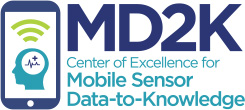
Department at a Glance
Data is as of Fall 2023, unless indicated otherwise.
Students
| Undergraduate |
612
|
||
| Graduate |
|
Faculty
The Department has 24 full-time faculty, 17 of whom are tenured or tenure-track. Our faculty include 2 IEEE Fellows, an IEEE Distinguished Lecturer, the Lillian and Morrie Moss Chair of Excellence Professor in Computer Science, and the Sparks Family Chair of Excellence in Global Research Leadership.
Faculty have been recognized extensively for their accomplishments. The awards conferred on individual faculty have included the Willard R. Sparks Eminent Faculty Award, Dunavant Professorship, Thomas W. Briggs Foundation Excellence in Teaching Award, College of Arts and Sciences Meritorious Faculty Award, and Early Career Research Award.
Research
Grant Funding
The Department is involved in three major national research initiatives: the Learner Data Institute with University of Colorado - Boulder, University of Wisconsin - Madison, University of North Carolina, University of Pittsburgh, 5 companies including Carnegie Learning, SoarTech, Aptima, WorkBay, and Gooru, and the Army's GIFT team; the MD2K Center of Excellence with Cornell, Georgia Tech, University of Michigan, Northwestern, Ohio State, University of Utah, UCLA, UCSD, UCSF, UMass Amherst, and West Virginia, along with Open mHealth; and Named Data Networking: Next-Phase with Colorado State, University of Arizona, UCLA, UCSD, UIUC, University of Michigan, and Washington University.
With millions in active grants, we have the highest per-capita research funding of any department on campus. We were recently ranked 55th among nationwide CS departments in federally funded research expenditures.
Interdisciplinary Institutes and Centers
- Center for Information Assurance
We are designated as a National Center of Academic Excellence in Cyber Defense Education and Research (CAE-CDE, CAE-R) by the NSA/DHS. - Institute for Intelligent Systems
- Systems Testing Excellence Program
Publications
Our faculty and students publish high-quality research in multiple areas of Computer Science. In 2014, they published 34 conference papers, 11 journal papers, and 6 books/book chapters.
Our faculty and students have published in top-tier venues in:
- Mobile Computing: ACM MobiCom, ACM UbiComp, IEEE/ACM Transactions on Mobile Computing
- Networking: IEEE/ACM Transactions on Networking, IEEE INFOCOM
- Sensors: ACM SenSys, ACM/IEEE IPSN, ACM Transactions on Sensor Networks
- Bioinformatics: BMC Genomics, BMC Bioinformatics, ACM BCB
- Human-Computer Interaction: ACM CHI, ACM UbiComp
- Evolutionary Computing: ACM GECCO
- Software Engineering: ACM/IEEE ICSE, IEEE Transactions on Software Engineering, ACM Transactions on Software Engineering and Methodology
- Machine Learning and Artificial Intelligence: AAAI, NIPS, ICML
- Computational Linguistics: ACL, COLING
- Theory: STOC, FOCS, SICOMP, SODA, SoCG, CCC, ITCS, ICALP, PODS
- Computer Security: ACM CCS
History
In response to a long standing quest that "There can be no great University without a great computer science department in the 21st century," seed efforts to establish a computer science department started back in the Department of Mathematical Sciences in 1971, where then-assistant professor Jim Jamison spearheaded an effort to offer courses in numerical analysis. This seed eventually bore the fruit of a BS degree in Mathematics with a concentration in computer science established in 1982 under Stan Franklin's chairmanship, during which the program became one of the first in the world to offer a computer literacy curriculum (Stan Franklin, "A Lab for All Seasons," PC Magazine, Dec. 1982). This was followed by hiring a critical mass of computer science faculty in 1984 and subsequent years, during Ralph Faudree's tenure as chair. A graduate concentration in computer science in the MS program was created shortly thereafter, and a new division with five faculty members was created in 1999 with Max Garzon as founding director. The Division had grown to 8 faculty members and established the new MS program in eCommerce when Sajjan Shiva joined as Director of the Division in 2002. By 2005, the Division had grown to 12 faculty members and the Tennessee Board of Regents approved the establishment of the Computer Science Department. Sajjan Shiva served as the first chair of the new Department, until 2016 when Lan Wang was selected as current chair.



